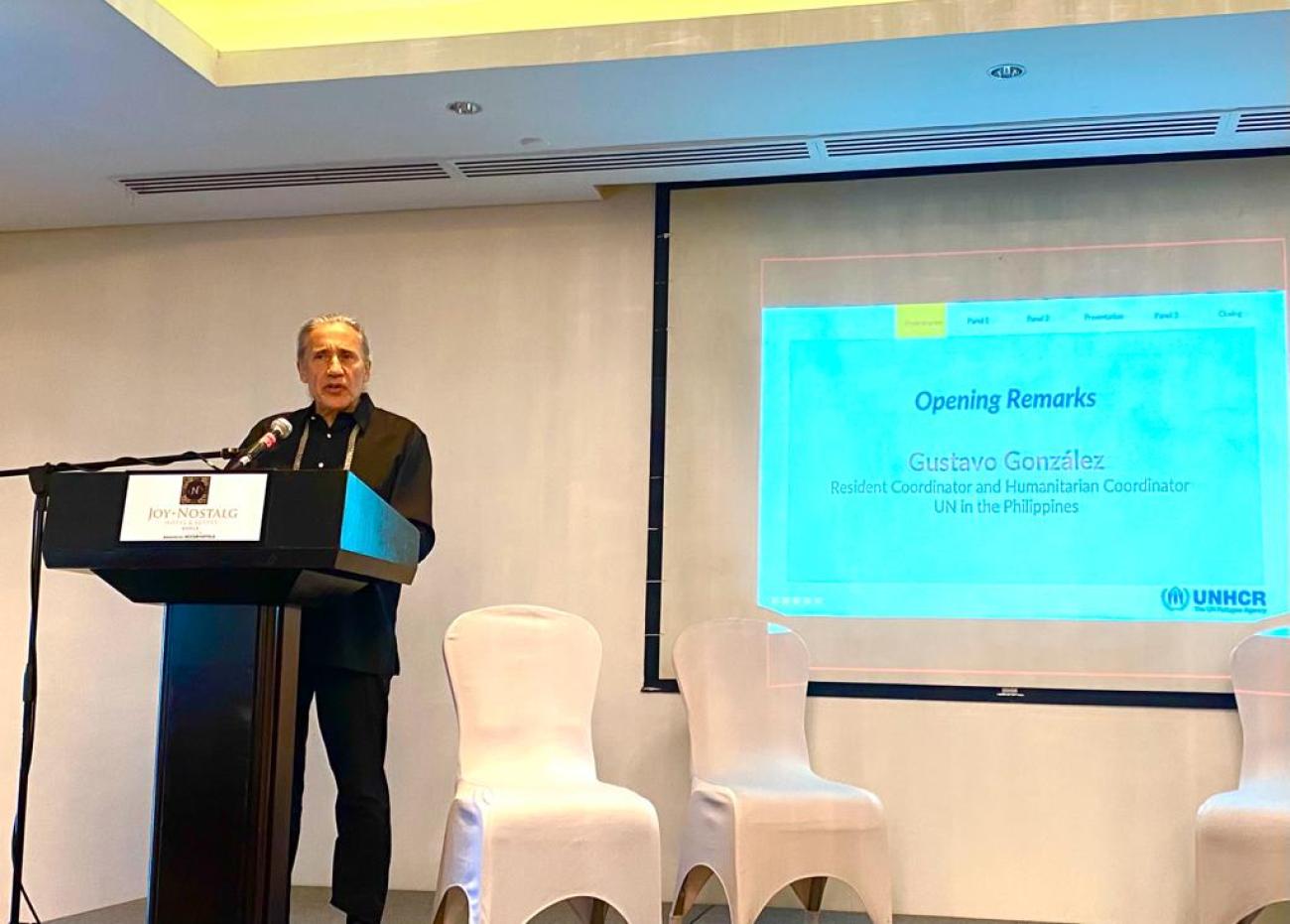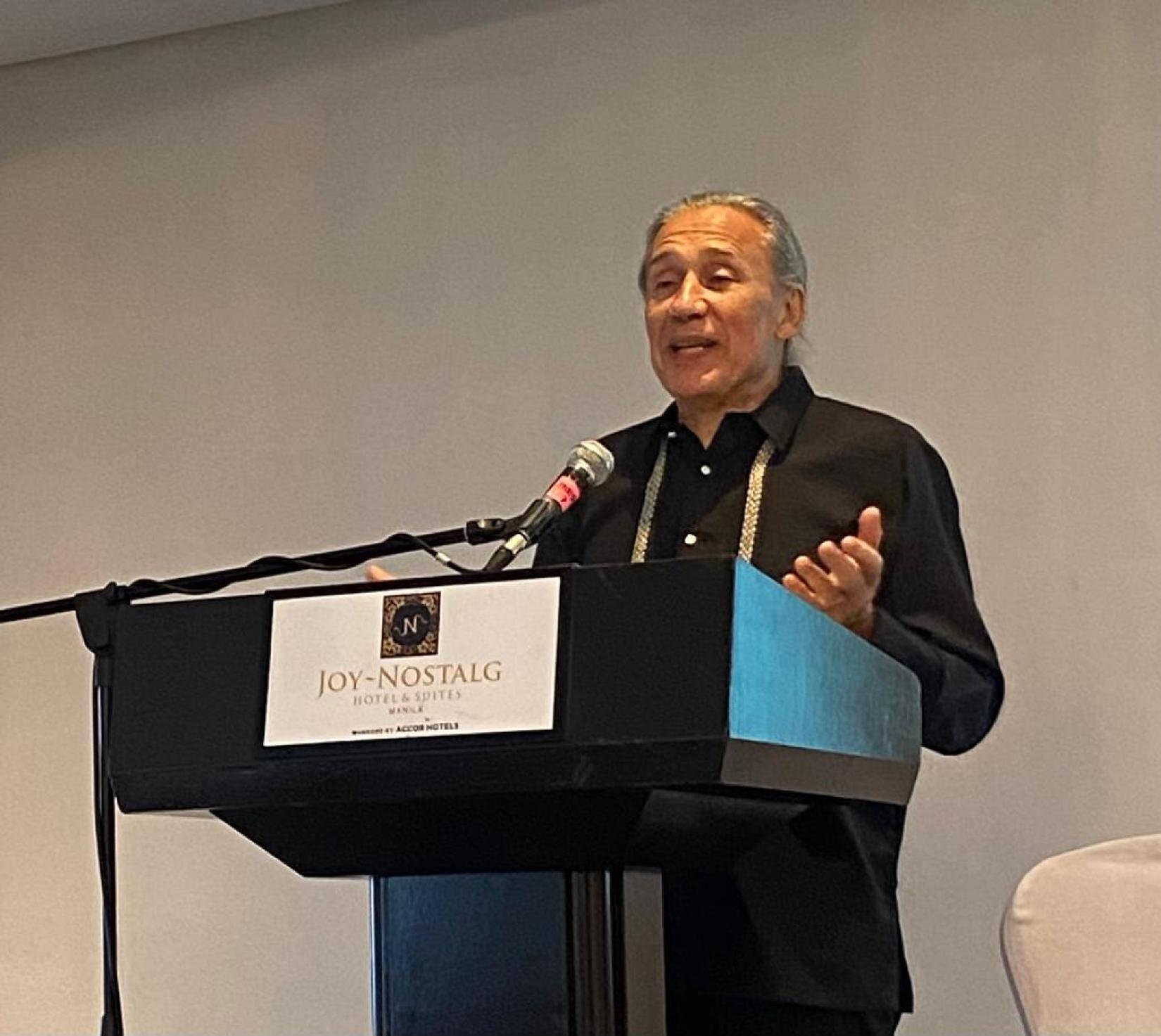UN Philippines chief advocates for durable solutions for internally displaced persons

There are 53 million IDPs around the world. The number of IDPs has doubled in the past decade.
MANILA, 17 April 2023--The Country Office of the UN High Commissioner for Refugees (UNHCR) marked today the 25th Anniversary of the UN Guiding Principles on Internal Displacement through a conference attended by representatives of the Bangsamoro Government, Philippine legislators, members of the executive department, and non-government partners.
United Nations (UN) Resident Coordinator and Humanitarian Coordinator in the Philippines, Gustavo Gonzalez, affirmed the commitment of the UN Country Team in the Philippines to work closely with internally displaced persons (IDPs) and host communities, the Philippine Government, civil society organizations, the academe and private sector towards durable solutions for IDPs.
Gonzalez's message, as prepared, is as follows:
Today is a special day for the humanitarian and human rights community and for everyone who is working to leave no one behind. We celebrate the 25 years of the United Nations Guiding Principles on Internal Displacement.
I still remember those days. In 1998, I was in Bangui, in Central African Republic, working for the UN. We didn’t have WhatsApp in those days, we were still timid in using emails, but I remember the very active negotiations in Geneva around what we know today the UN Guiding Principles on Internal Displacement.
I also remember that the reorganization of the Department of Humanitarian Affairs took place the same year and ended with the creation of what we know today as OCHA.
OCHA, the Office of the High Commissioner on Human Rights, UNHCR and the Special Representative of the Secretary-General (SG) on IDPs played a major role in crafting the Guiding Principles on Internal Displacement.
Unlike the case of refugees, there is no international universal treaty or convention which applies specifically to IDPs.
These Guiding Principles presented by the then Representative of the UN Secretary General on IDPs, M. Francis Deng, to the UN Commission on Human Rights in 1998, were therefore a fundamental milestone in the process of establishing a normative framework for the protection of IDPs.
Let me just share some statistics to reflect on the complexities of the IDPs agenda:
The first global IDP estimate compiled in 1982 comprised only 1.2 million people -IDPs- in 11 countries.
By 1995, close to the formulation of the Guidelines – immediately after the Rwanda genocide- there were an estimated 20 to 25 million IDPs in more than 40 countries, almost twice the number of refugees.
Today, we are talking about 53 million of IDPs in many countries in the world. The number of IDPs has doubled in the past decade.
In 1995 there were an estimated 20 to 25 million IDPs in more than 40 countries. Today, we are talking about 53 million of IDPs in many countries in the world. The number of IDPs has doubled in the past decade.
Today, we have the opportunity to go through the 30 Guiding Principles, appreciate their relevance and the importance to contextualize them in a planet where in addition to conflict and armed violence, we have other drivers of displacement.
Climate change is pushing farmers from their dry lands in the search of alternative livelihoods. Natural disasters are creating a new generation of protracted displaced people. Indigenous people are uprooted from their land by powerful business investors.
Last year, the UN Secretary-General launched the Action Agenda on Internal Displacement, with the aim of creating global political momentum to join our efforts and capacity in the search of durable solutions to IDPs.
The Agenda contains three interlinked goals closely aligned with the Guiding Principles. Still more important, the Philippines has been identified as one of the 16 priority countries to pilot the implementation of the UN Secretary General’s agenda on durable solutions for IDPs.
For that reason, today’s celebration of the Guiding Principles in the Philippines is extremely timely. It gives us the opportunity to translate Principles into concrete Action.
I’m very encouraged that we have already started discussions with the government, the humanitarian and development community on the rolling out of the Action Agenda.
The UN Country Team in the Philippines and I remain fully committed to work closely with IDPs and host communities, the Philippine Government, civil society organizations, academe and private sector towards durable solutions for IDPs.

These commitments will also be firmly reflected in and implemented through the forthcoming 2024-2028 UN Sustainable Development Cooperation Framework – UN’s key strategic document that will guide support and work in the country over the next five years.
I wish you a very productive conference.
Thank you!




